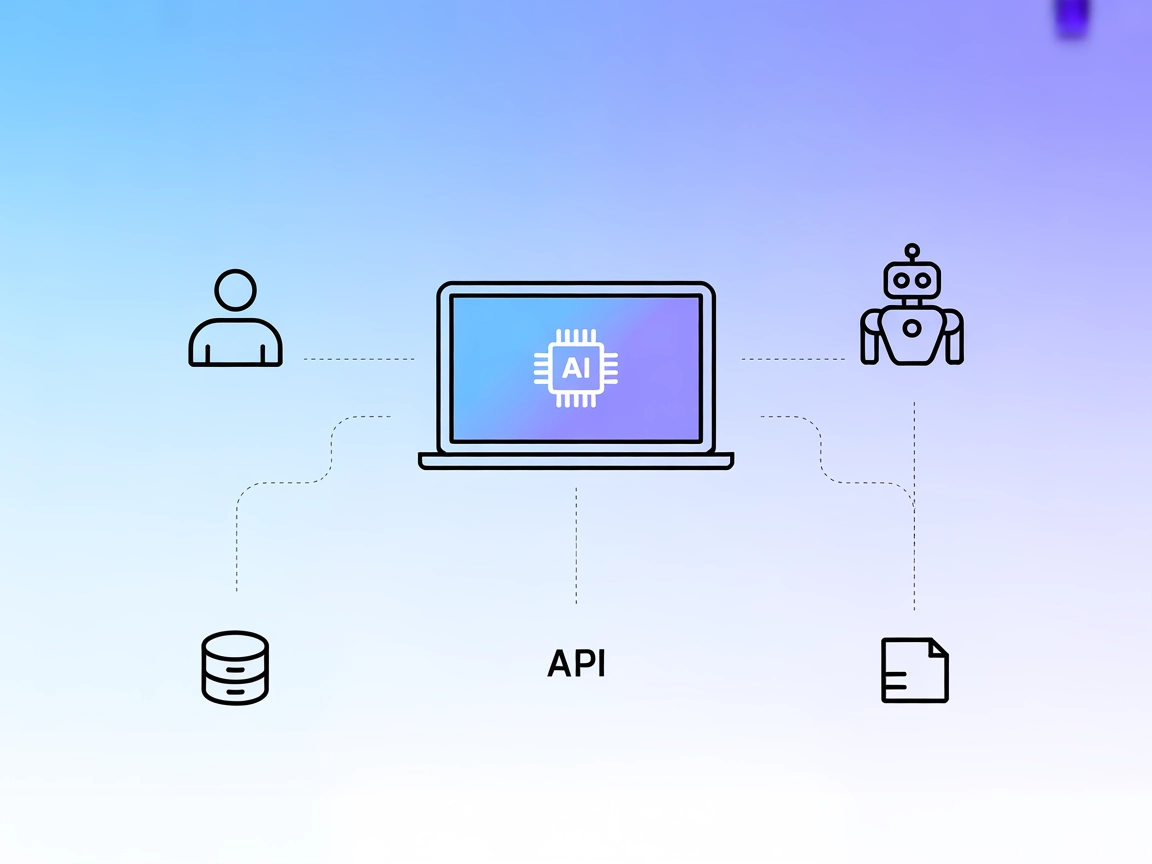
Chess.com MCP Server
The Chess.com MCP Server bridges the Chess.com public API with AI workflows via MCP, enabling seamless access to player profiles, statistics, and game records f...

Integrate Stockfish-powered chess analysis and move generation into your AI workflows with ChessPal MCP Server.
FlowHunt provides an additional security layer between your internal systems and AI tools, giving you granular control over which tools are accessible from your MCP servers. MCP servers hosted in our infrastructure can be seamlessly integrated with FlowHunt's chatbot as well as popular AI platforms like ChatGPT, Claude, and various AI editors.
The ChessPal MCP Server is a specialized Model Context Protocol (MCP) server that exposes the capabilities of the Stockfish chess engine to AI assistants and clients. By acting as a bridge, ChessPal allows AI models and applications to access advanced chess functionalities programmatically. This enables tasks such as evaluating chess positions, generating move suggestions, analyzing games, and more—all through a standardized MCP interface. The server enhances developer workflows by allowing seamless integration of Stockfish’s powerful chess analysis into AI-driven tools, bots, or educational platforms, making it easier to build applications that require chess expertise without directly managing the complexities of the engine itself.
No information about prompt templates is available in the repository.
No explicit resources are described in the repository.
mcpServers object using a JSON snippet.{
"mcpServers": {
"chesspal-mcp": {
"command": "chesspal-mcp-engine",
"args": []
}
}
}
{
"mcpServers": {
"chesspal-mcp": {
"command": "chesspal-mcp-engine",
"args": []
}
}
}
{
"mcpServers": {
"chesspal-mcp": {
"command": "chesspal-mcp-engine",
"args": []
}
}
}
{
"mcpServers": {
"chesspal-mcp": {
"command": "chesspal-mcp-engine",
"args": []
}
}
}
Securing API Keys
If the server requires API keys or secrets, store them in environment variables. Example:
{
"mcpServers": {
"chesspal-mcp": {
"command": "chesspal-mcp-engine",
"args": [],
"env": {
"MY_API_KEY": "${MY_API_KEY}"
},
"inputs": {
"api_key": "${MY_API_KEY}"
}
}
}
}
Using MCP in FlowHunt
To integrate MCP servers into your FlowHunt workflow, start by adding the MCP component to your flow and connecting it to your AI agent:

Click on the MCP component to open the configuration panel. In the system MCP configuration section, insert your MCP server details using this JSON format:
{
"chesspal-mcp": {
"transport": "streamable_http",
"url": "https://yourmcpserver.example/pathtothemcp/url"
}
}
Once configured, the AI agent is now able to use this MCP as a tool with access to all its functions and capabilities. Remember to change “chesspal-mcp” to the actual name of your MCP server and replace the URL with your own MCP server URL.
| Section | Availability | Details/Notes |
|---|---|---|
| Overview | ✅ | |
| List of Prompts | ⛔ | No prompt templates found |
| List of Resources | ⛔ | No explicit resources documented |
| List of Tools | ⛔ | No explicit tools listed |
| Securing API Keys | ✅ | Example provided |
| Sampling Support (less important in evaluation) | ⛔ | Not mentioned |
Between the available documentation and what is visible in the repository, ChessPal MCP Server appears to be a functional, single-purpose MCP server with clear setup guidance but lacks explicit documentation about resources, prompts, and tools. It does have a license (GPL-3.0), and is open source with minimal community activity. Based on these tables, I’d rate its completeness and documentation at 3/10.
| Has a LICENSE | ✅ (GPL-3.0) |
|---|---|
| Has at least one tool | ⛔ |
| Number of Forks | 1 |
| Number of Stars | 0 |
ChessPal MCP Server is a bridge between the Stockfish chess engine and AI assistants or applications. It exposes Stockfish's advanced chess analysis features over the Model Context Protocol (MCP), making it easy to add chess evaluation and move generation to your workflows.
ChessPal MCP is ideal for chess game analysis, building AI chess bots, powering educational chess platforms, automating game annotation, and enhancing AI assistants with real-time chess advice.
You can set up ChessPal MCP with popular clients like Windsurf, Claude, Cursor, or Cline by adding the server configuration to your system's config file and restarting your client. Sample configuration snippets are provided for each client.
Yes, if your deployment requires API keys, you should store them in environment variables and reference them in the MCP server configuration under 'env' and 'inputs'.
ChessPal MCP is open source and licensed under GPL-3.0.
Bring the power of Stockfish chess analysis to your applications and agents with seamless MCP integration.

The Chess.com MCP Server bridges the Chess.com public API with AI workflows via MCP, enabling seamless access to player profiles, statistics, and game records f...

The Model Context Protocol (MCP) Server bridges AI assistants with external data sources, APIs, and services, enabling streamlined integration of complex workfl...

The interactive-mcp MCP Server enables seamless, human-in-the-loop AI workflows by bridging AI agents with users and external systems. It supports cross-platfor...
Cookie Consent
We use cookies to enhance your browsing experience and analyze our traffic. See our privacy policy.